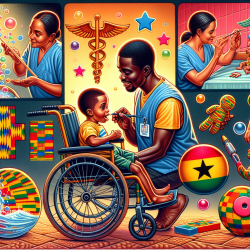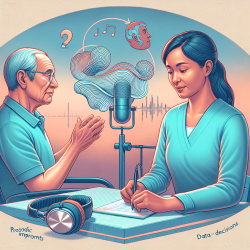As practitioners dedicated to the well-being of children with cerebral palsy (CP), it's crucial to continually refine our approaches based on empirical evidence. A recent study titled Experiences of primary caregivers of children with cerebral palsy across the trajectory of diagnoses in Ghana provides invaluable insights that can guide our practice.
Understanding the Context
The study explores the experiences of 40 primary caregivers in Ghana, using Social Capital Theory as a framework. The caregivers' journeys are segmented into three phases: before, during, and after the diagnosis of CP.
Before Diagnosis
Caregivers reported various complications during childbirth, such as induced labor and jaundice. The lack of immediate medical attention and cultural superstitions often led to delayed diagnoses.
During Diagnosis
Most caregivers initially faced dismissive attitudes from healthcare professionals, exacerbating their distress. Additionally, cultural beliefs and societal pressures added to their emotional burden.
After Diagnosis
Post-diagnosis, caregivers encountered significant challenges, including financial strain, social isolation, and difficulty accessing specialized healthcare and educational services. Many had to quit their jobs to provide constant care, further straining their resources.
Implications for Practitioners
Here are some actionable steps based on the study's findings:
- Enhanced Training: Healthcare professionals need training to recognize early signs of CP and provide empathetic, culturally sensitive support.
- Community Outreach: Educate communities to reduce stigma and superstitions associated with CP.
- Support Networks: Establish support groups to provide emotional and practical assistance to caregivers.
- Resource Allocation: Advocate for better access to healthcare and educational services tailored to the needs of children with CP.
Encouraging Further Research
While this study offers valuable insights, it also highlights the need for further research. Future studies should explore the experiences of caregivers in different cultural contexts and with various types of disabilities to develop a more comprehensive understanding.
To read the original research paper, please follow this link: Experiences of primary caregivers of children with cerebral palsy across the trajectory of diagnoses in Ghana.










